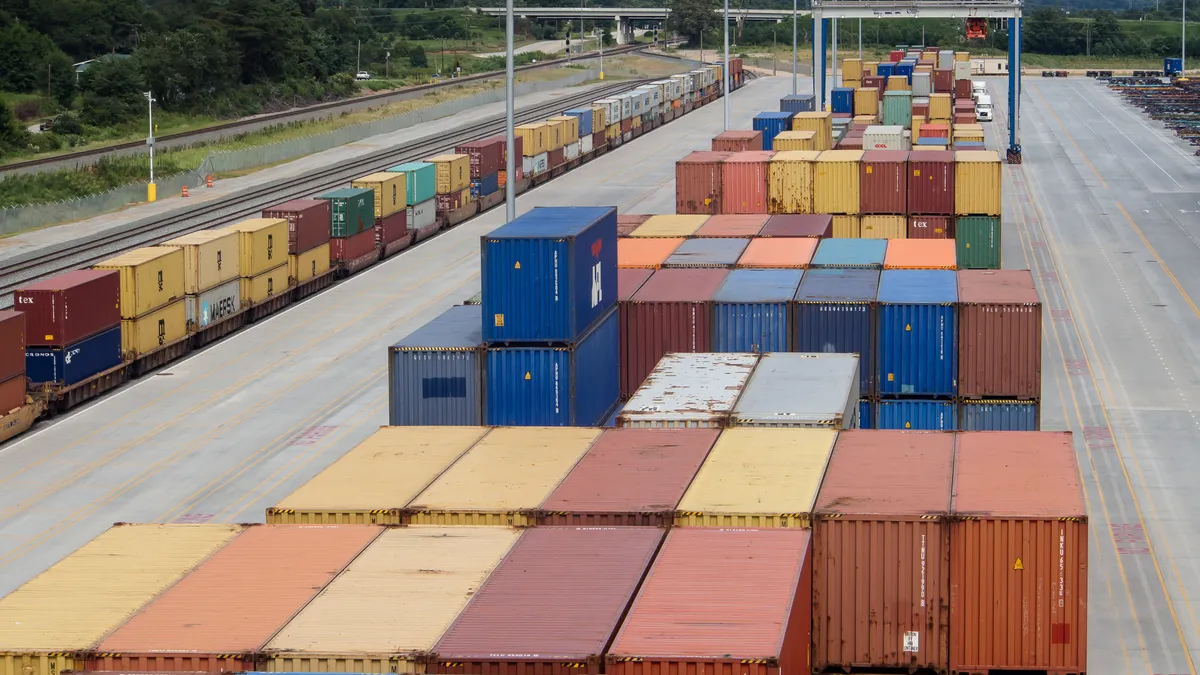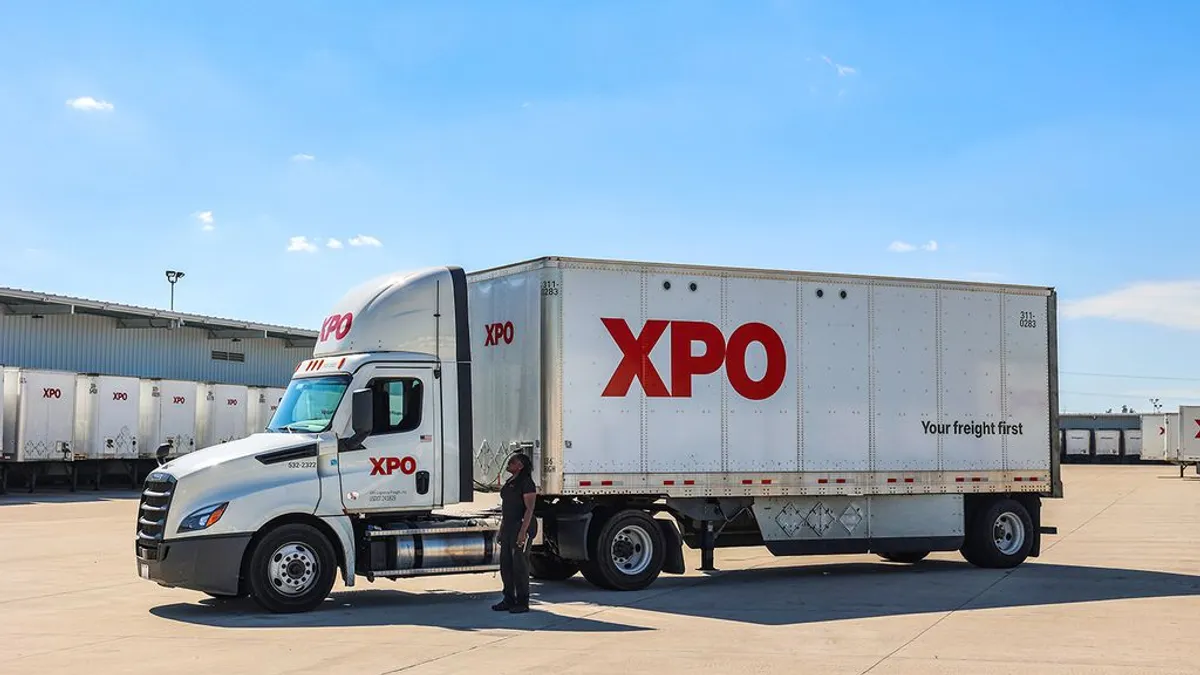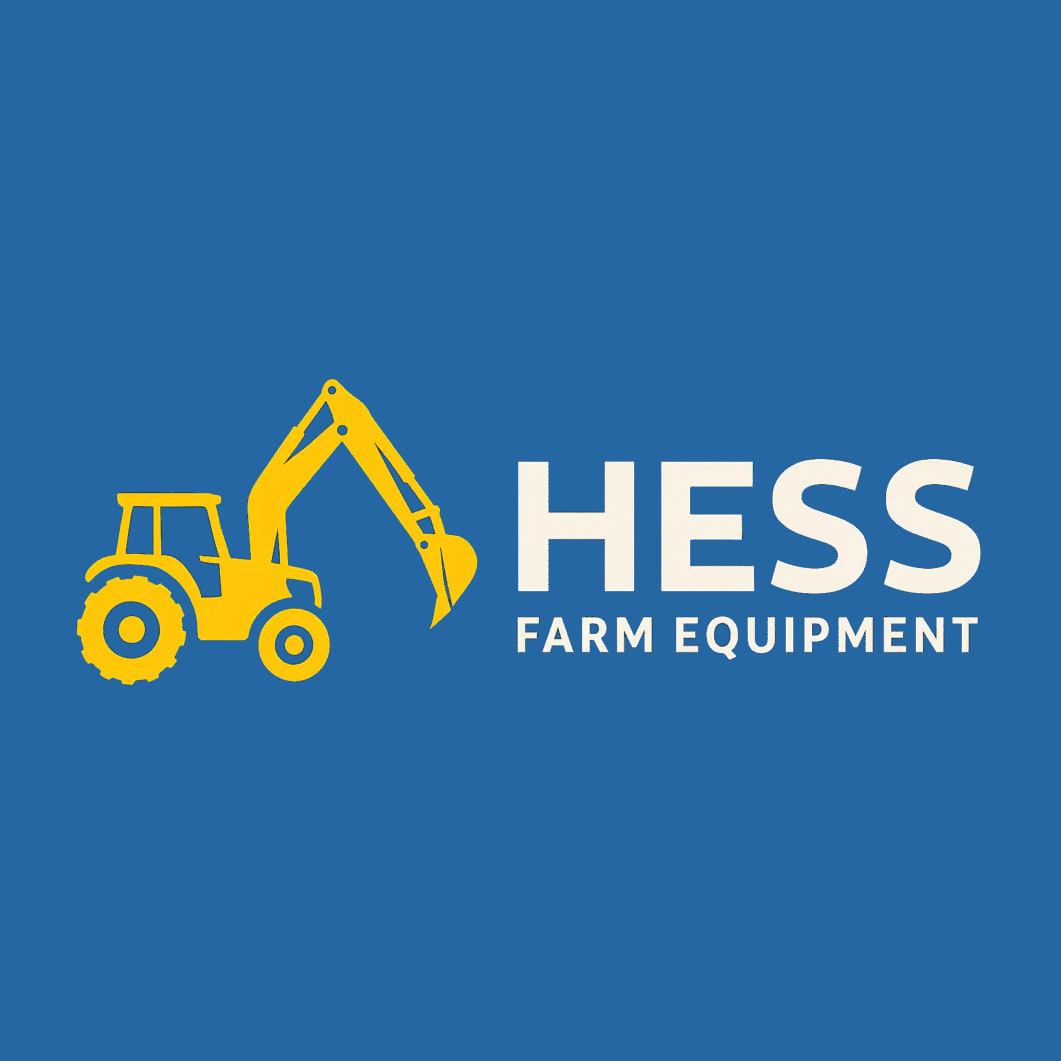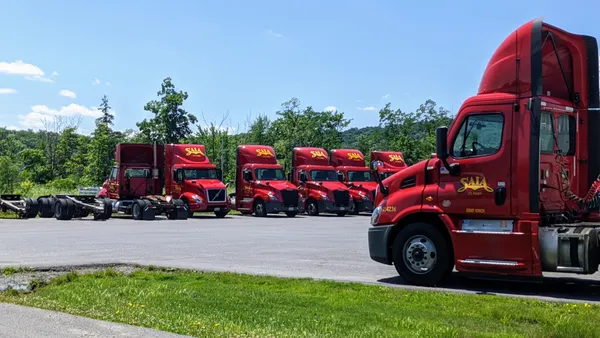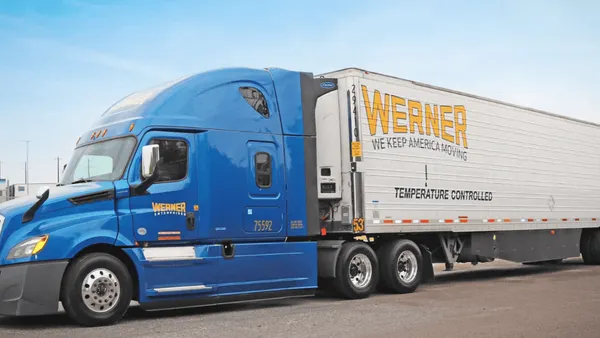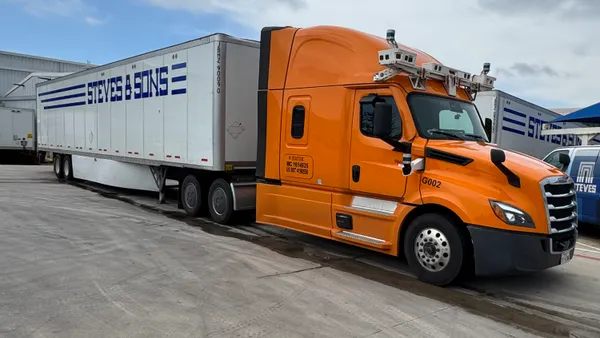Trimble has acquired Germany-based Transporeon in a $2 billion all-cash deal, the company announced last month.
The purchase is likely intended to strengthen the Colorado-based TMS provider’s existing technology and broaden its international client base, two logistics experts said in interviews.
Jason Celino, equity research analyst with KeyBanc Capital Markets, and Jonathan Phares, assistant professor of supply chain management at the Debbie and Jerry Ivy College of Business at Iowa State University, shared their perspectives on the company’s recent action with Transport Dive.
Editor’s note: This interview has been edited for clarity and brevity.
What does this acquisition mean for Trimble?
JASON CELINO: So, the software purchase that they made is actually quite interesting. We've done a lot of work on the digitization opportunities in transportation. With the pandemic and the supply chain bottlenecks, we've seen a pretty incredible uptick in supply chain modernization efforts by shippers, retailers, basically everybody. What the last couple years has exposed with all these pandemic challenges is there is a lot of green field opportunity left within the supply chain industry. So, for Trimble to kind of make this acquisition, especially in Europe, I think what they're trying to do is expose themselves to the higher growth and more exciting aspects of the transportation supply chain opportunity. The historic Trimble transportation business was much more levered. But they certainly faced some headwinds that they've been working through from competition and supply chain bottlenecks on the device side. So, this acquisition, I think it's a pretty good one, at least for what they're trying to accomplish on the IBO side.
JONATHAN PHARES: We’ve seen a lot of merger and acquisition activity recently. With Trimble and Transporeon, it gets interesting because Trimble has a technology focus, and they cover a lot of different industries. But then they already do routing optimization and some transportation management for their systems as well as navigation type things. It makes sense that they might pursue a TMS company like Transporeon because of their international presence. I think it also gives them more capabilities within the domestic market as well. They can pull transport services and sell it within the U.S. to grow that out. So I think this might be an opportunity for them to have a completed solution that they can merge with their existing infrastructure.
Does this signal that the company may be trying to get into freight brokerage and compete with major players including C.H. Robinson?
CELINO: We’ve asked Trimble this before the acquisition, whether they do want to compete with players like C.H. Robinson. But they told me, they didn't really want to. There's a lot of competition from some of these digital brokerages out there. And so, I don't think this acquisition really positions them to want to do that. There were some freight matching capabilities and I think that the end goal is more being an enabler versus a competitor.
PHARES: C.H. Robinson is first and foremost a brokerage company. They certainly have their own TMS system, so in that sense, if they do, Trimble can insert themselves into that decision making process and maybe be a part of a shipper’s transit transportation management from a technology standpoint. But from the overall strategy, I just don't see this being the way that you get into competing with companies like C.H. Robinson or J.B. Hunt. I think this acquisition is just expanding their technology.
The financial markets and industry analysts did not react positively to this deal. Why not?
CELINO: First of all, I think this is a very smart acquisition. I think that it really helps. Rob Painter, the CEO at Trimble and the company have a strategy to get exposed to the higher growth opportunities within transportation modernization. I think the hesitancy by maybe some other investors and analysts is the magnitude of the acquisition – this is basically a $2 billion deal. Additionally, they're going to be increasing leverage during potentially softer macroeconomic periods. And obviously, higher interest rates mean, higher borrowing costs. So, I think that the hesitancy is more near-term focused on kind of the financials and the timing, and probably the purchase price. But I think it's a long-term smart move.
PHARES: From an analyst’s perspective, a $2 billion cash offer is a lot of money that didn't go back to shareholders. During a Q3 or Q4, this would be when you would see companies returning dividends and that’s not what happened here. Trimble bought a pretty sizable company instead. To have that much cash on the balance sheet and then spend it on technology might be something that shareholders might not be super excited about. And then just from a global perspective, we're seeing a lot of economic shifts in global conflicts and trade issues and things like that may not bode well for Trimble making this purchase.
Editor’s note: KeyBanc Capital Markets has provided non-securities related services for Trimble Inc. in the last 12 months and investment banking services for the company.



